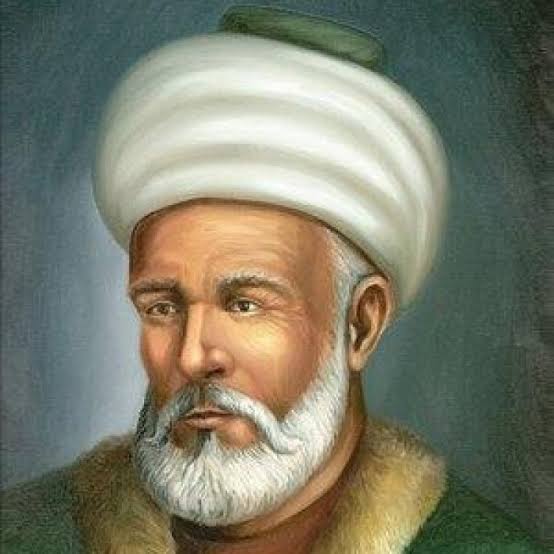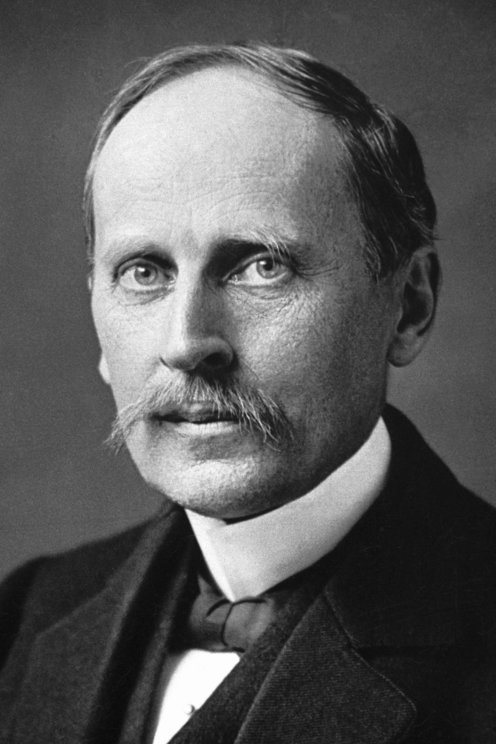 |
| Socrates |
(339-469 BC)
The day was over. Two people were moving faster than him. They have to reach Delphi before the darkness falls. One is called Chaerephon, a middle-aged Greek. The two of them came and stopped in the courtyard of the huge temple of Delphi. The priest of the temple came forward as soon as he entered the stairs. Cherephon looked at him and said, we have come to know a thing from the gods. The priest said, "Introduce yourself to the idol of Lord Apple and tell me what you want to know." The ugly-looking man first came forward and said, I am Socrates, Lord, I know nothing. This time Cherephon introduced himself and said, O Almighty God, tell me who is the greatest sage of Greece? As soon as he finished talking on the phone, a prophecy came from the sky trembling all around. Sopphroniscus, the father of Socrates (469/463 BC), who knew himself, was an architect. Mother Fenaret (Sopphroniscus) used to make various stone statues. Was a midwife. Although both parents were employed in two professions, there was always a shortage in the family. So instead of studying as a child, I had to take up the job of cutting stones. But the indomitable desire for knowledge belongs to Socrates. When you get a chance to know where you store the knowledge.
Thus many years passed. One day I happened to meet a rich man. He took charge of his studies, fascinated by Socrates' polite and sweet demeanor and intelligent speech. Leaving the stone work, Socrates was admitted to a guru named Anaxagoras. A few days later, when for some reason Anaxagoras was indicted in court, Socrates became a disciple of Arch Ekhlas. At this time the country of Greece was divided into small kingdoms. As a result, there would be fights, wars and conflicts of power among themselves. Every young, capable, capable man in the country had to go to war. Socrates also had to go to Amphipolis with the Athenian army. After this war, his mind gradually became hostile toward war. He left his military service and returned to Athens. Athens was then one of the best countries in the world in knowledge, glory, business, valor and semen. Art is a golden age of literary culture. In this environment, Socrates could not keep himself away from the world of knowledge. He decided to devote himself to the practice of knowledge, the pursuit of knowing the nature of the world.
Every morning he would wake up and go out after a little breakfast. Bare feet, covered with a thick cloth. One day he would go and sit in a shop in the city, in the attic of a temple or in a friend's house. Socrates could be found everywhere in the city. Talking to people with open heart. Chatting, asking questions from time to time, pretending not to know or understand anything. Asking questions to find out from people. In fact, questioning and arguing was the business of a class of people of that era. They were called Sophists. They used to talk big about money. Those who were proud of their erudition, boasting of heroism, he would ask directly, what do they mean by heroism? What is the nature of scholarship? When they answered something, He would question again. He would arrange question after question to explain how wrong their idea was. How full they are of false egoism. They all became angry with Socrates for revealing themselves in this way. But Socrates would not have been the least bit upset. He had unshakable faith in his own ideal, the truth. At the same time there was extreme indifference towards financial resources. Once his friend Alcibiadesh wanted to give him a large piece of land to build a house. Socrates returned his friend's gift and said to Sakoutu, "I need a shoe and you give me a huge leather.
I don't know what to do with it." Apathy towards worldly possessions brought as much peace in his philosophical life as it brought unrest in his worldly life. But he was equally indifferent to her. His wife Xanthiphe was a terribly angry woman. He could not accept Socrates' indifference to worldly matters. One day Socrates was reading a book with deep concentration. Jnanthipi started cursing in great annoyance. For a while Socrates did not listen to his wife. But in the end he could not bear it anymore and went outside and started reading the book again. Gyananthipi could no longer bear it and brought a bucket of water and poured it on his head. Socrates smiled softly and said, "I knew in advance that when there was so much thunder, there would be a downpour." In addition to Gyanthipi, Socrates had another wife, Myrto. He had three children in the womb of two wives. Despite being in poverty, he did not show any indifference towards their education. He believed that education was the best resource of human beings. It is in education that the full light of knowledge of the human heart is revealed. Only through knowledge can man recognize the truth. When the truth is revealed to him, he commits no more sins. All sins are born out of ignorance. He wanted to remove that ignorance of the human mind and awaken the sense of increasing justice in the middle. So that they can properly control their actions. His goal was to help people realize that truth through discussion questions. Philosophers have dubbed the method of judging argument through words the Dialectic Method, a method introduced by Socrates. Plato, his later disciple, and Aristotle, a disciple of Plato, fully developed that line of reasoning.
The golden age of Greek civilization from the last half of the sixth century BC to the last half of the fifth century. It was during this period that Socrates was born. But the decline of this civilization began in his youth. As a result of the long war with each other, the influence of everyone began to diminish. Greece's richest state, Athens, was not spared. Not only the economy but also the society and politics came down to disaster. To inculcate thoughts in people through argument, to lead people to the path of truth. Socrates' ideal was not well received by many in the country. They had misconceptions about Socrates. Moreover, those who considered themselves the best in the pride of learning wealth and heroism , Standing in front of Socrates, the shell of their arrogance would fall off. In this way, the aristocracy became fiercely opposed to Socrates. Their conspiracy led to Socrates' strong opposition to the country's civil court (399 BC). The main allegation against him was that he was trying to introduce a new god by denying the existence of the traditional gods of Athens. Secondly, he has misled the youth of the country. Two other reasons for the allegations against him were the defeat of Athens in the 26-year war with Sparta, which dealt a severe blow to the country's trade and commerce. There was a recession in the economy. The religious people of that time thought that this defeat must have been due to the curse of the gods and the atheistic teachings of Socrates were responsible for it.
Melati, Lycon, and Anatus, three nobles of Athens, brought charges against Socrates. A 501-member panel of judges was formed to preside over the hearing. Socrates gave a long speech before this jury. It is unknown at this time what he will do after leaving the post. However, Plato left Socrates' statement. In a surprisingly beautiful narrative, this essay in depth of speech is one of the greatest resources of world literature. … O inhabitants of Athens, I do not know how you felt when you heard the speech of my accusers, but I was overwhelmed by the surprise of their speech, although there was no sign of truth in their speech. I am presenting my statement in response to this. I don’t know how to use elegant language like the complainants. Let me reveal the truth only in the interest of justice. Why am I disgusted with my countrymen? I heard the prophecy in the temple of Delphi a long time ago and then I thought what does it mean? I am not wise, but why did the goddess take me to the goddess and say, look, this is a wiser man than me. I started looking for wise people. I noticed exactly the same thing. From there I went to the poets. Talking to them I realized they were really ignorant. They create everything from God-given energy and motivation, not from knowledge. In the end I went to the artists, the artisans. They know a lot of things that I don’t know. But they too, like the poets, considered themselves to be extremely knowledgeable in all matters, and it was this delusion that obscured their true knowledge. I made many enemies for this search.
People slandered me, saying that I was the only one who knew, but by then I had realized the meaning of the prophecy. How insignificant is human knowledge? God used my name as an example to say that the wisest of you who knows like Socrates, who knows the truth and knowledge has no value. I am sure that I have gained the displeasure and enmity of many and my ultimate punishment will be for this enmity, not for Meletus or Anitus. If punished, it would be because of the jealousy and suspicion of the people which has caused the destruction of many funerals before me and will probably cause the destruction of many more. There is no reason to think that I am the last of them… therefore, O citizens of Athens, I say either listen to Anitus or ignore him. Either release me or not, but rest assured I won't change my life. God sent me to attack this state. The state is a great beautiful horse. Due to its large size, it needed bees to wake it up, to slow it down and speed it up. I think I am that bee sent by God. I pierce your body all the time and awaken healthy thoughts in you, inspire you with reason and keep everyone busy with rebuke. … Friends, excluding the impossible, it is unreasonable to appeal to the judges for release or to avoid punishment. It is our duty to instill conviction in their minds by presenting arguments, the duty of the judge is to do justice. Not to flatter friends in the name of justice. I believe in God, much more than my plaintiffs believe. So long as I have spoken before God and you. Now let the best judgment be for you and me. But in the trial, Socrates was found guilty by a vote of 261-220. In those days in Athens, if a convict was found guilty, he would be given the opportunity to choose between the two punishments. But Socrates believed he was innocent, so after the verdict was pronounced he replied, O inhabitants of Athens, shall I offer retribution on my behalf?
Isn't that what I deserve? I have gone to each of you personally, just for your benefit. This is how I wanted to benefit you. It is my last wish that the beneficiary should take charge of government expenditure. The jury became even angrier at Socrates' statement. Their idea is that Socrates is mocking them. Many more went against him and he was sentenced to death. Socrates was not disturbed by the terrible judgment. He said calmly, now is the time for all of us to leave, but I will go to death, you will go to life. Life or death - only God can tell who is the best? Crito was the richest of Socrates' friends. He bribed the prison guards to persuade Socrates to flee to another country. But Socrates believed that every citizen of the country had a duty to obey the law and order of the country. Ignoring a court order and fleeing to another country means disrespecting the law. Moreover, it would give everyone the idea that Socrates was really a criminal. The judges did the right thing by convicting him. On the day of death, all the disciples came to the prison one by one. He took a bath and returned. The sun then set in the western sky.
At that moment, the prison staff came to the door like a death knell. Crying in deep pain, he announced that it was time for Socrates to be poisoned. The executioner enters the room, pointing to the royal official standing outside, holding his poison in his hand. Socrates smiled and picked up the pot. Unexpectedly, he prayed to God for the last time and then drank all the poison. Then he started walking in the room under the direction of the executioners. Gradually the poison began to spread all over him. The legs became heavy. Unable to move, he lay down on the bed. He covered his face with a cloth. A few moments all was quiet. Death is all quiet. Socrates traveled to Amritlok through death. Soon after his death, the people of Athens erupted in anger and grief. There was a sound of contempt all around. Judges were everywhere.!!






0 Comments